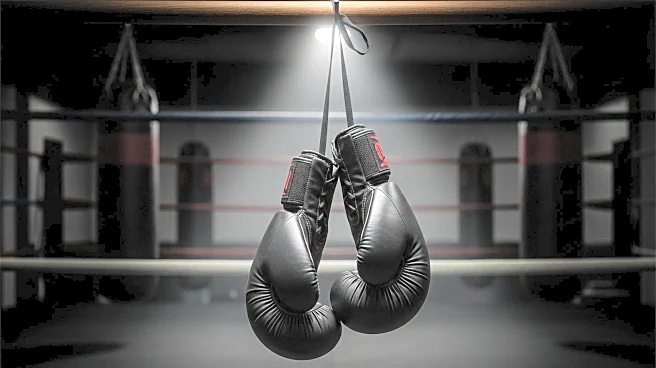What's Happening?
Ricky Hatton, a celebrated British boxing legend, has died at the age of 46. Known for his vibrant personality and exceptional boxing skills, Hatton was a two-weight world champion who fought against some of the best in the sport, including Kostya Tszyu, Floyd Mayweather, and Manny Pacquiao. His career was marked by his aggressive fighting style and his ability to connect with fans, making him a beloved figure in Manchester and beyond. Hatton's legacy extends beyond his achievements in the ring, as he was also recognized for his warmth and humor outside of it. Despite his success, Hatton faced personal struggles, including depression and addiction, which he openly discussed to help others.
Why It's Important?
Ricky Hatton's passing marks the loss of a significant figure in British boxing, whose influence extended globally. His ability to draw large crowds and his relatable personality helped popularize boxing in the UK, paving the way for future stars like Tyson Fury and Anthony Joshua. Hatton's openness about his mental health challenges also highlights the importance of addressing mental health issues within the sports community. His legacy serves as both an inspiration and a cautionary tale, emphasizing the need for support systems for athletes facing similar struggles.
What's Next?
Tributes from fans, fellow athletes, and sports organizations are expected to continue as the boxing community mourns Hatton's passing. His influence on the sport and his contributions to mental health awareness may lead to increased efforts to support athletes dealing with mental health issues. Additionally, discussions around his career and personal life may prompt further examination of the pressures faced by professional athletes.
Beyond the Headlines
Hatton's story reflects broader themes in sports, such as the balance between public success and personal challenges. His candidness about his struggles with depression and addiction underscores the need for greater mental health resources for athletes. Hatton's legacy may inspire more open conversations about mental health in sports, encouraging athletes to seek help and support.









